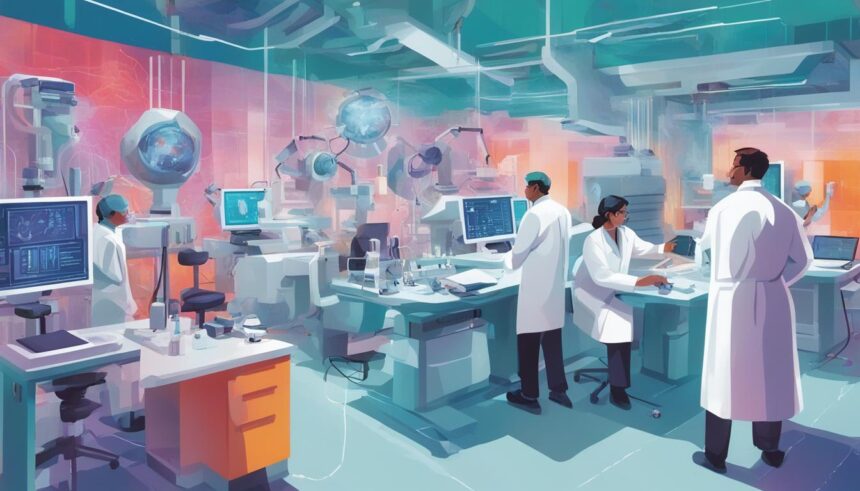A collaborative initiative between the U.S. and India seeks to overhaul newborn screening systems to tackle the financial and health challenges posed by rare diseases, advocating for global cooperation and technological integration.
In a visionary stride towards revolutionizing healthcare, a transformative U.S.-India partnership is being proposed to confront an urgent healthcare challenge: the diagnosis and treatment of rare diseases through enhanced newborn screening (NBS). This collaborative effort stands as a significant venture aiming to bring science and policy together to better identify and manage over 10,000 rare diseases currently affecting millions globally.
The urgency of this initiative is underscored by a recent report revealing that the costs associated with delayed diagnosis of rare diseases can skyrocket between $86,000 to $500,000 annually. Such figures highlight not only the financial burden on healthcare systems but also stress the emotional and physical toll on affected families and individuals.
The current landscape of newborn screening varies widely between the United States and India. While the U.S. has a comparatively robust system capable of screening newborns for approximately 80 metabolic diseases, India lacks a nationwide mandatory NBS program. This discrepancy reveals a gap in the potential early identification of rare diseases, which is critical to improving patient outcomes and reducing long-term healthcare costs.
Experts, such as Dr. Harsha Rajasimha, founder of the Indo US Organization for Rare Diseases (IndoUSrare), emphasize the need for global collaboration. By creating extensive patient registries and databases and integrating advanced technologies like Mass Spectrometry and Genomic technologies, NBS programs could be tremendously expanded. Dr. Rajasimha advocates leveraging “scalable high-throughput technologies” to cover the vast number of births annually in both countries— almost 30 million in India and 3.7 million in the U.S.
Despite the technological advancements and the reduced costs in genome sequencing, challenges remain. Comprehensive screening using exome or whole genome sequencing can still present financial hurdles for families, particularly in low-and-middle-income countries (LMICs). Furthermore, most health insurance plans do not cover NBS tests, citing the difficulty in quantifying the immediate benefits for screened babies.
Consequently, both national and international policy advocates and healthcare experts are pushing for reform. Annie Kennedy, Chief of Policy, Advocacy, & Patient Engagement at the EveryLife Foundation for Rare Diseases, stresses sharing strategies and resources globally. By modernizing NBS systems, optimizing clinical care, and embracing digital AI innovations, early diagnosis can be a reality for many more children with rare diseases.
In terms of tangible benefits, this heightened focus on NBS would allow for earlier patient identification, thus fostering a conducive environment for clinical trials and potentially expediting access to treatments. Dr. Rajasimha pointedly states, “Technologies are mature and available now… but just not being tapped into due to lack of will or supporting public health policies.”
Moreover, there is vast potential for mutual benefit in this U.S.-India healthcare initiative. India has already demonstrated capacity for scalable and affordable healthcare solutions during its COVID-19 vaccine development and the recent introduction of cheaper CAR-T therapy for Leukemias and B-cell Lymphomas. These examples set a promising precedent for accessible innovation in treatment not just within national boundaries but on a global scale.
As countries around the world grapple with the complexities of rare diseases and the challenges in diagnosing them early, a firm step forward through this kind of international partnership could herald a new era of global healthcare—where the benefits of innovation are universally accessible. This is not merely an enhancement of existing frameworks but a reimagining of how to approach the healthcare of tomorrow.





